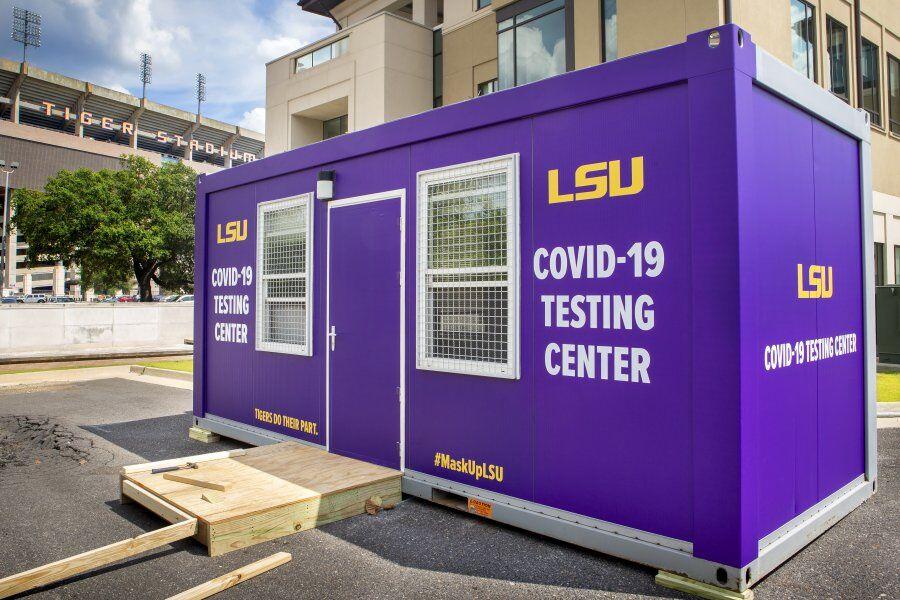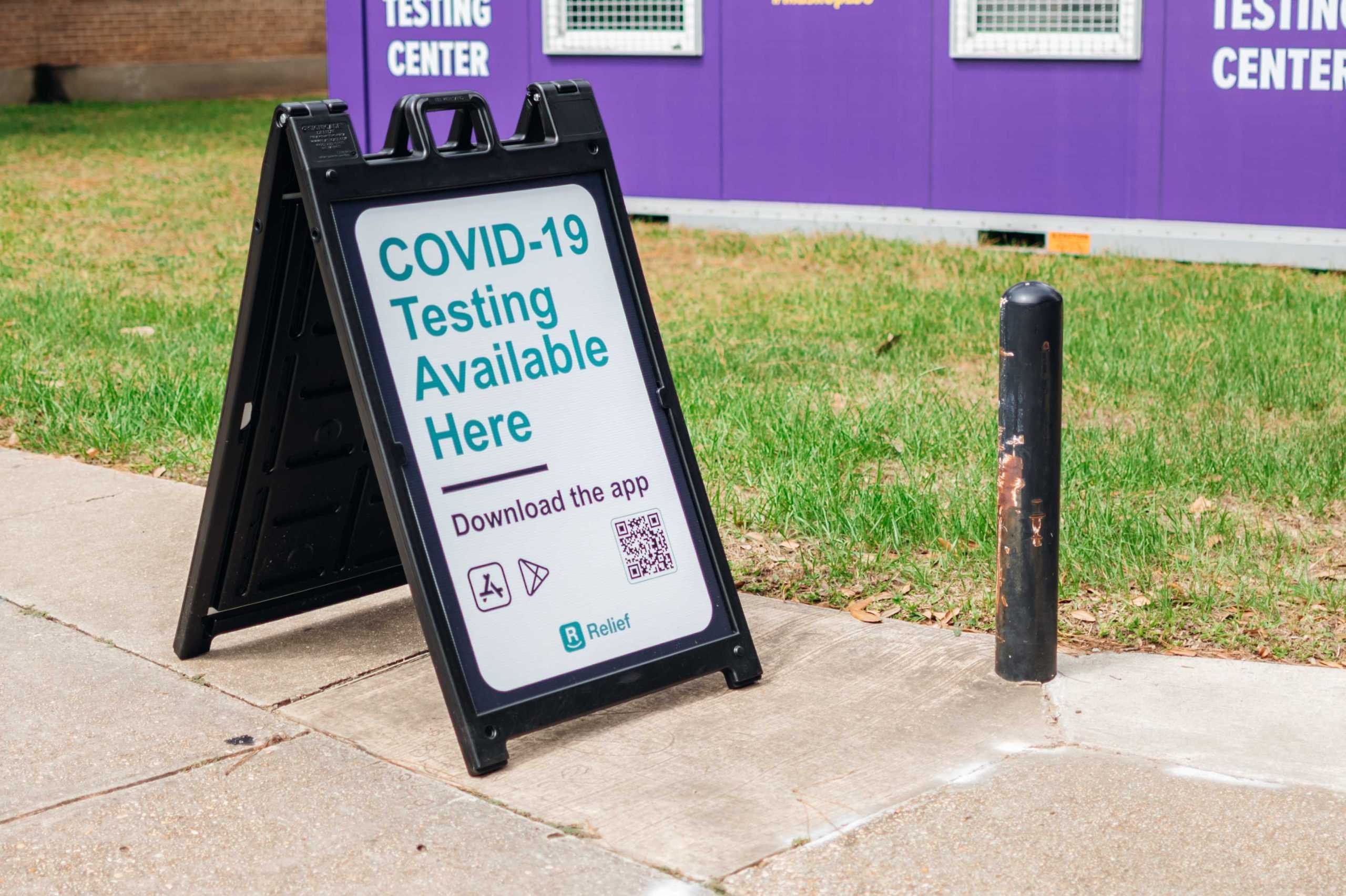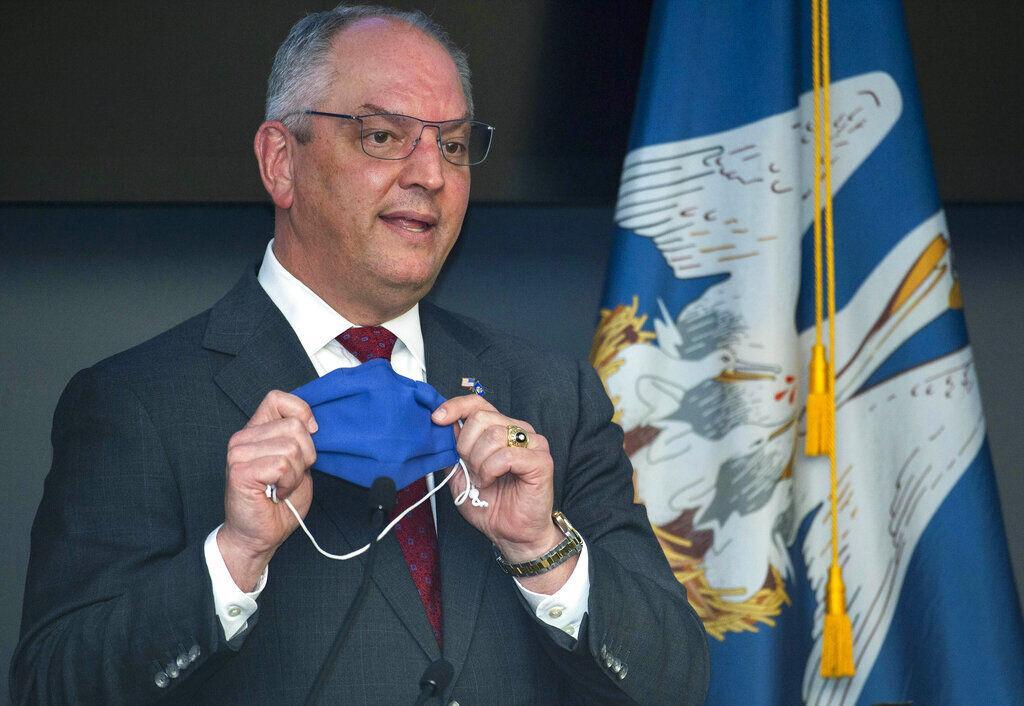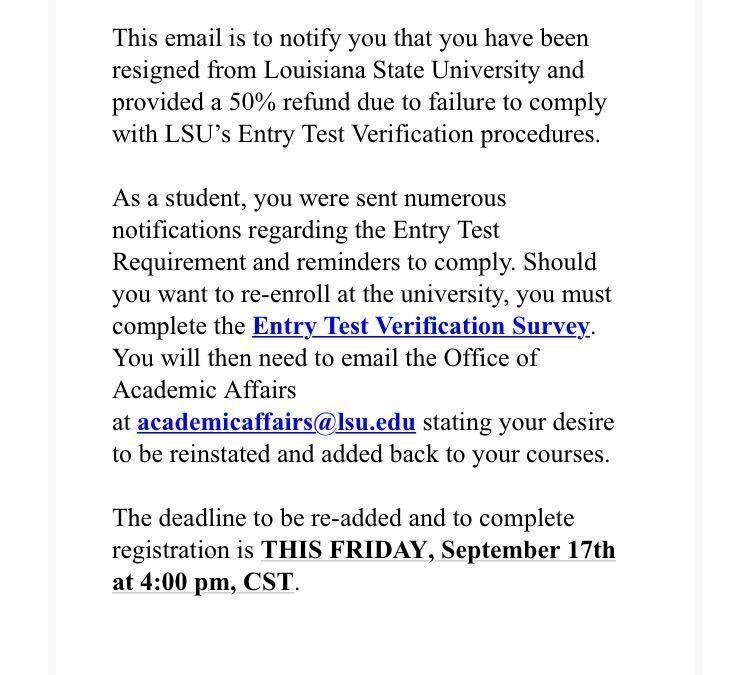LSU will implement new COVID-19 testing and safety protocols for the spring semester, including new testing centers, bi-weekly mandatory testing of a random sample of students and incentives for students who get tested, according to an email sent on Jan. 9.
Here are some of the changes:
Testing locations
The COVID-19 testing PODs set up last semester will no longer be available. Testing locations moved to three main locations on campus:
LSU Student Union Theatre
-
Hours of operation: weekdays 9 a.m. to 4 p.m.
-
Results can be expected within 72 hours.
263 Coates Hall
-
Hours of operation: weekdays from 9 a.m. to 5 p.m., weekends 10 a.m. to 6 p.m.
-
Results can be expected within 48 hours.
Student Health Center
-
Hours of operation: weekdays from 8 a.m. to 5 p.m., weekends from 9 a.m. to 12:30 p.m.
Students don’t need to make appointments to get tested at the Union Theatre or at Coates Hall.
“It takes less than 10 minutes to get through registration and get tested and get out of there,” Keena Arbuthnot, special adviser to the president on COVID-19 response, said. “Registration is really easy, you just bring your student ID. If you have insurance, you show them your insurance and they put that information in, your LSU email address; you go to one of the testing centers and get tested.”
Students need to schedule a telehealth appointment before being tested at the SHC.
Psychology sophomore Marcus Mills said that while the University has done well at implementing protocols to slow the spread of the virus, the student body plays a significant role in keeping campus safe.
“I believe LSU is doing the right things to reduce the spread of the virus,” Mills said, “but honestly, it’s up to us students to protect ourselves and each other.”
Mandatory testing
A random sample of the student population will be required to get tested every two weeks. Starting Jan. 22, an email will be sent out every other Friday to students selected for random testing with instructions on where they will be tested the following Monday and Tuesday.
Arbuthnot said the University aims to test at least 5% of the student population on campus every two weeks.
Only students who have a footprint on campus will be selected for random testing, such as students who live in Greek Life housing, on-campus housing or have one or more in-person class.
“If you don’t receive that email on Friday, you haven’t been selected,” Arbuthnot said. “You won’t have to worry about it until two weeks after that.”
Interim President Thomas Galligan urged students to get tested on multiple occasions last semester, explaining that more testing could give the University a more complete picture of cases on campus and possibly allow for fewer restrictions.
Multiple outbreaks occurred at on-campus housing, leading the University to test entire resident halls on multiple occasions.
Over 50 student leaders, along with the Student Government president and vice president, signed a petition to implement a version of mandatory testing for students on campus last semester. The University considered implementing mandatory testing as COVID-19 cases surged during the fall semester, but decided not to.
This semester, in combination with random mandatory testing, the University will continue to monitor the wastewater on campus. Arbuthnot said wastewater testing has proven to be one of the most effective tools in monitoring the spread of COVID-19.
Mass communication senior Schylar Harris said she thinks mandatory testing will help slow the spread of COVID-19 on campus since many people experience mild or no symptoms.
“I think they have done a great job with the availability of testing,” Harris said. “However, I think they need to adapt. The longer the pandemic goes on, the more people want [and] need to have more freedom. The community needs safety though, so it’s important to implement and encourage testing.”
Incentives for testing
The University is also offering potential prizes for students who are chosen for mandatory testing and those who get tested on their own time.
Students who take advantage of on-campus testing– both those who choose to get tested and those selected for random testing– will be entered into a biweekly raffle to win incentives including Apple Airpods, an iPad and an Apple Watch.
The first raffle will start when the first round of students are tested, and the winner will be announced Jan. 28.
LSU Dining is also offering CC’s Coffee House vouchers to the first 1,000 students tested at Coates Hall Testing Center.
Mass communication junior Ricky Bryant said he thinks incentivizing students to get tested is a good idea.
“I am glad the University is incentivizing getting tested on campus,” Bryant said. “I hope the incentives really do empower more students to get tested more often.”
Daily Symptom Checker
The QR code from the daily symptom checker will be used for entrance into high traffic areas on campus this semester.
Arbuthnot said this decision was made based on the feedback from the survey administration sent out to faculty, students and staff last semester. She said many students said that there were no repercussions for not filling out the daily symptom checker and that they had never been asked to provide their code on campus.
Arbuthnot said there won’t be set locations on campus designated as “high traffic.” She said it will vary as administration observes which areas have more traffic each week.
Some potential locations are the Union, UREC, library and buildings that have multiple large classes.
When administration deems an area high traffic, there will be someone wearing a yellow vest asking for students’ QR code from the daily symptom checker at the entrance of the building.
“This is a great way to keep people doing the symptom checker if they’re going to be coming on campus, especially if they’re going to be around a lot of people,” Arbuthnot said.
The University will also have a call center available to answer any questions about COVID-19 from the LSU community beginning Jan. 18. The call center number is 225-427-1326.
LSU’s COVID-19 dashboard will continue to be updated with the number of active cases on campus.









